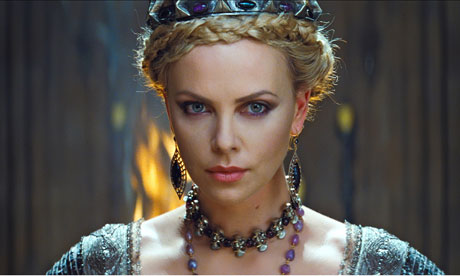I was tempted to just post this article on Tuesday, because this week has been HUGE for Oscar news. Three categories shortlisted and the first of the critics’ awards dropped; that’s a lot to cover.
New York Film Critics Circle Announce 2012 Awards
I wrote more on the Oscar chances for all of these movies now that the NYFCC has had their say at a new blog called The Artifice. Just know that “Zero Dark Thirty” is now the movie to beat, McConaughey and Weisz have earned a new life, and “The Master” is facing an increasingly uphill battle at a nomination. (via nyfcc.com) UPDATE: Turns out the movies that do not appear on this list didn’t do as badly as everyone expected. The NYFCC has a complicated ballot voting system to determine winners in each category, and this year just about every category was taken to multiple rounds of voting to determine a consensus, proving that 2012 has a wide array of great movies with supporters in every camp. In fact, “Lincoln,” which performed so handsomely here, actually placed fourth on the overall ballot for Best Picture, behind “The Master” and “Moonrise Kingdom.” (via J. Hoberman)
Best Picture: Zero Dark Thirty
Best Director: Kathryn Bigelow – Zero Dark Thirty
Best Screenplay: Tony Kushner – Lincoln
Best Actress: Rachel Weisz – The Deep Blue Sea
Best Actor: Daniel Day-Lewis – Lincoln
Best Supporting Actress: Sally Field – Lincoln
Best Supporting Actor: Matthew McConaughey – Bernie, Magic Mike
Best Cinematographer: Greig Fraser – Zero Dark Thirty
Best Animated Film: Frankenweenie
Best Non-Fiction Film: The Central Park Five
Best Foreign Film: Amour
Best First Film: David France – How to Survive a Plague

Documentary Feature category shortlisted
Maybe normal people think it’s crazy that documentaries, of all things, could make some movie buffs so up in arms. And yet that is the case every year when the Documentary Branch of the Academy announces their shortlist. Now granted, last year these people snubbed Werner Herzog, Errol Morris and Steve James, so it was unlikely there was going to be even greater fervor this year. But, despite me having seen only a handful, the number of films I’ve heard of on this list of 15 and the number still absent speak to how great a year it’s been for documentaries. All this despite the branch’s head Michael Moore instating new rules, such as the requirement to get your movie screened in New York and L.A. and reviewed by The New York Times. Here’s the list: (via Oscars.com)
“Ai Weiwei: Never Sorry”
“Bully”
“Chasing Ice”
“Detropia”
“Ethel”
“5 Broken Cameras”
“The Gatekeepers”
“The House I Live In”
“How to Survive a Plague”
“The Imposter”
“The Invisible War”
“Mea Maxima Culpa: Silence in the House of God”
“Searching for Sugar Man”
“This is Not a Film”
“The Waiting Room”
So missing from this list is “The Central Park Five,” which if you were paying attention above just won the NYFCC honors, “West of Memphis,” “The Queen of Versailles,” “Paul Williams Still Alive,” “Marley,” “Jiro Dreams of Sushi,” “Samsara” and “Marina Ambrovic: The Artist is Present,” which, admittedly, could be a short list all its own. This list of 15 could be a lot worse than it is, and the few that have been snubbed won’t have any trouble getting seen. This is me trying to not get too angry.

Visual Effects category shortlisted
The Academy announced on Thursday the list of 10 potential nominees in the Visual Effects category. The full list is below: (via Oscars.com)
“The Amazing Spider-Man”
“Cloud Atlas”
“The Dark Knight Rises”
“The Hobbit: An Unexpected Journey”
“John Carter”
“Life of Pi”
“Marvel’s The Avengers”
“Prometheus”
“Skyfall”
“Snow White and the Huntsman”
You’ll immediately notice the snub of “The Impossible,” which has an unbelievably lifelike depiction of a tsunami hitting Thailand. My guess is that “The Impossible’s” sequence, while dazzling, is just a small part of an otherwise effects free movie, thus paving the way instead for these 10 gargantuan Hollywood blockbusters. “Snow White,” “John Carter” and “Spider-Man” may all be surprises, but more pleasant surprises would’ve been something like “Beasts of the Southern Wild,” “The Grey,” “The Cabin in the Woods,” “Looper,” “Flight” or even “Chronicle” from way back in February.
Best Live Action Short Film Category shortlisted
This may come as a shock, but the Live Action short category is actually news! The news here is that the shortlist has a record 11 films on it due to a tie in the voting. That won’t mean any more or less nominees, still anywhere from three to five, but it’s something. The only names you’ll recognize however are Ron and Bryce Dallas Howard for their short film “when you find me.” Good luck seeing any of these. (via Oscars.com)
“A Fábrica (The Factory),” Aly Muritiba, director (Grafo Audiovisual)
“Asad,” Bryan Buckley, director, and Mino Jarjoura, producer (Hungry Man)
“Buzkashi Boys,” Sam French, director, and Ariel Nasr, producer (Afghan Film Project)
“Curfew,” Shawn Christensen, director (Fuzzy Logic Pictures)
“Death of a Shadow (Dood van een Schaduw),” Tom Van Avermaet, director, and Ellen De Waele, producer (Serendipity Films)
“Henry,” Yan England, director (Yan England)
“Kiruna-Kigali,” Goran Kapetanovic, director (Hepp Film AB)
“The Night Shift Belongs to the Stars,” Silvia Bizio and Paola Porrini Bisson, producers (Oh! Pen LLC)
“9meter,” Anders Walther, director, and Tivi Magnusson, producer (M & M Productions A/S)
“Salar,” Nicholas Greene, director, and Julie Buck, producer (Nicholas Greene)
“when you find me,” Ron Howard, executive producer, and Bryce Dallas Howard, director (Freestyle Picture Company)
“Amour” sweeps European Film Awards
It isn’t so often a Palme D’Or winner can actually devour every other award its up for. “Amour” won Best European Picture, Director for Michael Haneke, Actor for Jean-Louis Trintignant and Actress for Emmanuelle Riva. That’s why this is increasingly looking like an even bigger Oscar contender than some are predicting. For what it’s worth, Haneke has already won Best Director for both “The White Ribbon” and “Cache.” (via Indiewire)
Week 7 Predictions Continue reading “Off The Red Carpet: Week of 11/28 – 12/5”
 Derek Cianfrance’s films have big emotions, sprawling, slow burn narratives and are steeped in conflict, romance, melodrama and more. He takes intimate stories, like a deteriorating marriage in “Blue Valentine,” or a relationship between two fathers on opposite sides of the law in “The Place Beyond the Pines,” and blows them up with Biblical importance and gravity. In the process, he wrings some incredible performances and powerful drama out of movies that might otherwise feel overwrought.
Derek Cianfrance’s films have big emotions, sprawling, slow burn narratives and are steeped in conflict, romance, melodrama and more. He takes intimate stories, like a deteriorating marriage in “Blue Valentine,” or a relationship between two fathers on opposite sides of the law in “The Place Beyond the Pines,” and blows them up with Biblical importance and gravity. In the process, he wrings some incredible performances and powerful drama out of movies that might otherwise feel overwrought.
 If you could be transformed into any animal, which would it be? It sounds like a bad question on a dating website, and yet we’ve become more reliant on such quirks in defining relationships and romance. Colin Farrell chooses to be the title animal in “The Lobster,” an absurdist satire that uses a hilariously bizarre, futuristic premise to lampoon the idea of modern love.
If you could be transformed into any animal, which would it be? It sounds like a bad question on a dating website, and yet we’ve become more reliant on such quirks in defining relationships and romance. Colin Farrell chooses to be the title animal in “The Lobster,” an absurdist satire that uses a hilariously bizarre, futuristic premise to lampoon the idea of modern love. No filmmaker is more of a modern day Fellini than Italian auteur Paolo Sorrentino. His films are opulent wonders, but while his extravagant visual style has for some become a sensory overload, it was Sorrentino reckoning with that same opulence in his last film, the Oscar winning foreign language film “
No filmmaker is more of a modern day Fellini than Italian auteur Paolo Sorrentino. His films are opulent wonders, but while his extravagant visual style has for some become a sensory overload, it was Sorrentino reckoning with that same opulence in his last film, the Oscar winning foreign language film “
